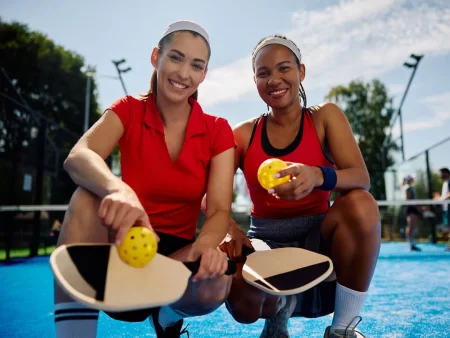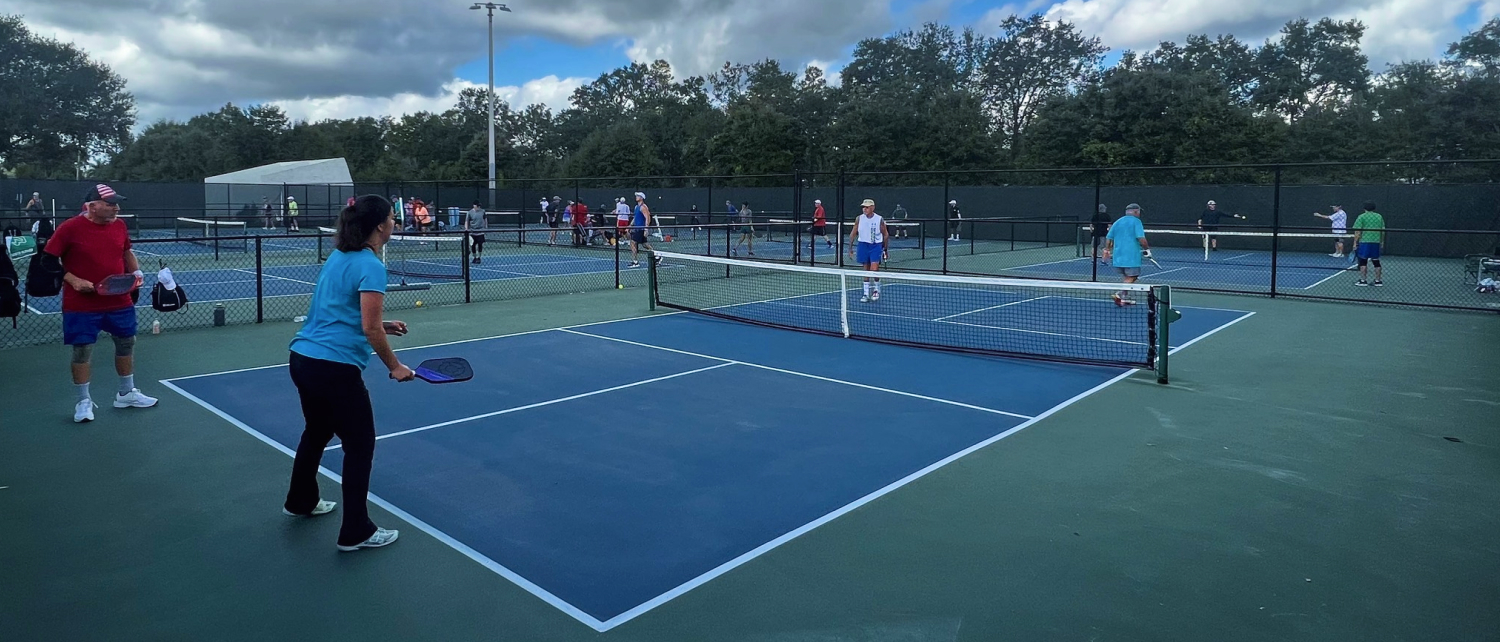Your cart is currently empty!

Pickleball, a sport that has its roots in the backyards of the Pacific Northwest, has come a long way since its inception in the 1960s. What started as a family pastime has now evolved into a sport that’s capturing the hearts of millions, from children to seniors. As we’ve discussed, its growth in colleges is undeniable. But as we look to the future, the potential inclusion of pickleball in the NCAA could be its most significant leap yet.
A Deep Dive into Pickleball’s Origins
To understand the magnitude of pickleball’s potential NCAA inclusion, it’s essential to appreciate its humble beginnings. The sport was invented by three fathers – Joel Pritchard, Bill Bell, and Barney McCallum – as a way to entertain their bored children during the summer. Using improvised equipment, including a badminton court, ping pong paddles, and a perforated plastic ball, they created a game that was easy to learn and fun to play. Little did they know that their backyard invention would one day aspire to NCAA recognition.
The Grassroots Movement
The growth of pickleball was largely organic. Communities across the U.S. started adopting the sport, with local clubs and organizations promoting it. Senior communities, in particular, found pickleball to be an excellent way to stay active and socialize. Tournaments at the local, state, and national levels began to emerge, further solidifying pickleball’s place in the American sports landscape.
The College Surge
As we’ve highlighted, the recent surge of pickleball in colleges is noteworthy. But what’s driving this trend? Beyond the factors we’ve discussed, there’s a broader cultural shift at play. Today’s college students are looking for alternative ways to stay fit, de-stress, and connect with peers. Traditional sports like basketball or football might not appeal to everyone. Pickleball, with its relaxed pace and emphasis on fun, fits the bill perfectly.
The NCAA: A Legacy of Excellence
The NCAA, with its rich history and commitment to student-athletes, represents the pinnacle of college sports. For any sport, being recognized by the NCAA is a mark of legitimacy and prestige. It means that the sport has achieved a level of popularity, organization, and standardization that warrants its inclusion in collegiate competitions.
The Path to NCAA Recognition
While the idea of pickleball joining the ranks of NCAA sports is exciting, the path to recognition is rigorous. Here’s a potential roadmap:
- Establishing College Leagues: Before NCAA recognition, pickleball enthusiasts would need to establish inter-college leagues. These leagues could serve as a proving ground, demonstrating the sport’s viability at the collegiate level.
- Standardization: The NCAA has strict guidelines for sports, from equipment specifications to game rules. The pickleball community would need to ensure that the sport’s rules are standardized and universally accepted.
- Building a Case: Armed with data from college leagues, the pickleball community could then approach the NCAA. This would involve showcasing the sport’s popularity, benefits, and potential to draw audiences and sponsors.
- Pilot Programs: As with any new initiative, the NCAA might opt for pilot programs in select colleges. These programs would be closely monitored to gauge student participation, audience engagement, and overall feasibility.
- Full-fledged Inclusion: If the pilot programs are successful, the NCAA could then move to include pickleball as an official sport. This would involve setting up championships, providing funding, and promoting the sport across its platforms.
Championing Diversity in Sports
One of the standout features of pickleball is its inclusivity. In an era where there’s a growing emphasis on diversity and inclusion, pickleball stands out as a sport that truly embodies these values. Its potential inclusion in the NCAA would send a strong message about the importance of promoting diverse sports that cater to a wide range of participants.
Economic Implications
Beyond the game itself, the economic implications of pickleball’s NCAA inclusion are vast. From equipment manufacturers to event organizers, a whole ecosystem could benefit. Colleges could leverage pickleball tournaments as revenue-generating events, drawing in sponsors and audiences. Local communities, too, would benefit from hosting games, with local businesses reaping the rewards of increased footfall.
In Conclusion
The journey of pickleball, from a simple backyard game to its current stature, is nothing short of remarkable. Its potential inclusion in the NCAA would be a crowning achievement, reflecting the sport’s universal appeal and adaptability. While challenges lie ahead, with the collective efforts of the pickleball community, educational institutions, and the NCAA, the dream can become a reality. As we look to the future, it’s clear that pickleball’s story is just beginning, and its brightest chapters are yet to be written.
Picture Credit: iStock
by



